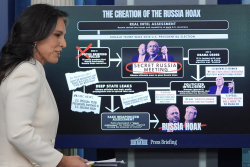As the Lord leads us further along the path to holiness, we start to learn subtleties of sin that we didn’t see before. The enemy and our ego work in more hidden ways, especially through spiritual blindness and pride, which the Lord must show to us, teaching us how actions motivated by them are not in line with His will. This is what the Lord showed me recently through a painful experience.
Someone who was sure of their rightness in discerning God’s will forced me into a conversation I wasn’t ready for because my emotions were high from receiving shocking news—news which deeply impacted my daughter. My initial pain, frustration, and anger were in response to watching how the situation was mishandled and seeing my daughter grieve through it. I needed time to process everything, so that’s what I asked for. But instead, I was essentially emotionally blackmailed into a conversation before I was ready, even though this person genuinely thought they were acting charitably.
The reason this struck me so much is because the Lord wanted me to understand how I have done this to people over the years. In those instances, I thought I was acting charitably, but I was blind to the spiritual pride I was operating under. This situation made it all too clear how we can subtly manipulate one another, even in the name of following God.
This person was absolutely sure they were right in discerning God’s will in this particular instance. I had not prayed about it or worked through it, nor could I be certain of God’s will in that moment. I asked for time to process, but my request was ignored.
The conversation went as I expected. All the pain, anger, and frustration boiled over immediately. Wounds surfaced from years prior that I didn’t know were still there. This situation piled on top of everything else on my shoulders, and I buckled. This is why I asked for time. I knew my emotional state in that moment. With the graces of Confession and a Holy Hour, I likely would have been fine, but I wasn’t given that chance.
I lost my temper. I said things that I’d held in for a long time, and they came out in a way I didn’t intend. Grief over my daughter’s suffering poured out of me like black bilge. My weakness, failings, and sin were on full display in a very open way. Yet the person on the other end of the phone was at peace, apologetic even, and very sure of themselves.
I knew I would need to get to Confession after the conversation. But still, the Lord wanted to show me something important. The reason for the conversation was a catalyst for the Lord to show me how I have run over people in the past, how I had operated under this insidious form of spiritual pride and manipulation. I had pushed people into conversations they weren’t spiritually or emotionally prepared for, even though I myself was at peace or thought I was acting charitably.
First fervor, which is typically when we answer a call to a new vocation or mission from the Lord, is filled with great excitement, consolations, seeming clarity, and surety in what we are called to do. Also within this fervor may lie profound areas of spiritual pride and blindness. This does not mean we have discerned a calling improperly—in fact, we may be correct in what the Lord is asking of us. But the temptation remains.
It is also true that, when we are given a calling from the Lord, our certainty will not always be met with certainty and understanding from those around us. The supportive and unsupportive responses of people can serve both as a corrective and a way of discerning properly the Lord’s promptings. Other people not recognizing our calling is an opportunity to delve deeper into discernment in order to make sure we are truly following God’s will. We need to mature and be refined in our callings.
Thankfully, the Church has the great spiritual masters to help us learn to temper this fervor, and, combined with much prayer and spiritual guidance through discernment, we can avoid these pitfalls. There is a reason St. Paul waited years before he was sent out as a missionary; he needed to grow spiritually.
What struck me most about this situation was how surety—or even true clarity—in God’s will can still lead us to commit very subtle forms of pride. This is why the saints did not trust themselves and sought only to trust in God. They recognized their weakness and blindness. They understood how often self-love and pride work in hidden ways in our lives.
As I went through this experience, the Lord showed me how I made the same subtle mistakes and sins when I was discerning and learning a new secondary vocation a few years ago. I sought spiritual guidance from multiple priests, my husband, friends, and my spiritual mother. During that time, a lot of people saw the genuineness of the call—especially my spiritual director—but the degrees of understanding varied from person to person. Some saw it as a clear calling, others thought it was strange, and some refused to believe it had anything to do with them.
During that period, there were multiple times I forced conversations with people, because after 1.5 years of discernment and spiritual direction, I was finally sure of what God was asking of me. Other people were not, and instead of being patient with them, I forced them into conversations they couldn’t handle. It destroyed relationships. The only reason this relationship is not destroyed—I immediately saw the temptation to end the relationship given how it made me feel—is because I recognized the subtle spiritual pride and related to it myself. This reflection is allowing me to prayerfully work through forgiving this person rather than ending the relationship.
Sin is not always clear to us. We are masters of self-deception, and if we are not properly formed in these subtleties, then we can fall into patterns of sin and manipulation even as we are genuinely trying to do God’s work. Part of growing in holiness is learning these more hidden forms of sin. People need time to pray about, understand, and accept missions we are given from the Lord. Pushing them is pride.
Some people never accept that we have been given a particular mission. That is painful, and while a genuine calling from the Lord is not up to human beings, we need to be mindful of the weaknesses and difficulties it can pose for others. We cannot force people to believe us or not allow people the time they need to process big news just because we are sure. We may need to continue forward without their support, but we should be patient with them in charity.
Zeal can very easily override charity. Our own spiritual blindness can do great harm to others. It was very obvious that I sinned through anger and lack of charity, which thankfully I could offer to the Lord in Confession, but the lesson the Lord needed to show me was how much I have hurt people doing the exact same thing this person did to me.
Anytime charity is subverted by our desire to be right—even if we believe we are being charitable and patient—is an indication of sin at work. If we cannot give people time to calm their emotions before difficult conversations take place, then it is pride, not charity that is operating.
May the Lord reveal to us the areas where we are operating through spiritual pride and blindness, and bring us healing.















